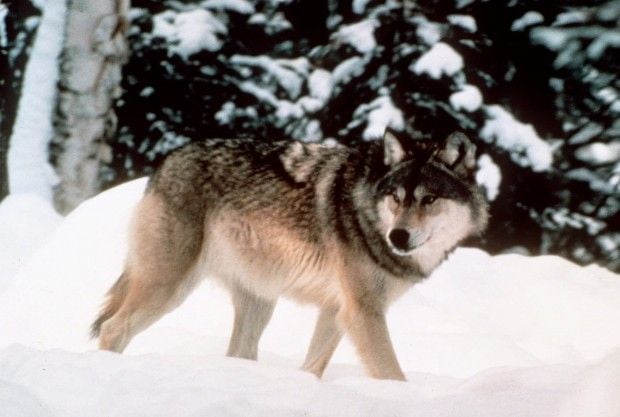CHEYENNE, Wyo. — Wyoming and U.S.
government officials have filed separate notices that they will appeal a
ruling by a federal judge that reinstated protections for wolves in the
state.
The notices filed this week target the decision
in September by U.S. District Judge Amy Berman Jackson of Washington,
D.C., who rejected a Wyoming wolf management plan that took effect in
2012.
The state plan had classified wolves in most of the state as predators that could be shot on sight.
Jackson
agreed with the U.S. Fish and Wildlife Service that wolves in the
Northern Rockies have recovered. However, she ruled that the federal
agency should not have accepted Wyoming's nonbinding promise to maintain
at least 100 wolves and 10 breeding pairs outside of Yellowstone
National Park and the Wind River Indian Reservation.
The
Fish and Wildlife Service reintroduced wolves in the Northern Rockies in
the 1990s. The animals have since expanded their range.
Despite
the plan to appeal, Wyoming Gov. Matt Mead said Thursday he believes
that congressional action holds the best chance for resolving the
long-running dispute over manage wolves in the state.
Congress
previously specified that there could be no legal challenges to
decisions to end federal protection for wolves in Idaho and Montana.
Many
Wyoming residents believe the wolf population in the state should be
restrained to minimize the killing of livestock and other wildlife by
the animals.
Wyoming has been involved in nearly
continuous litigation against environmental groups and the U.S. Fish and
Wildlife Service over the state's effort to gain control of wolf
management.
"To state it as simply as possible, we're
trying to cover all bases," Mead said of the state's notice that it will
appeal Jackson's ruling.
Mead said his administration is
working with the state's congressional delegation on legislation to
turn over wolf management to Wyoming and prohibit further legal
challenges.
Under the plan rejected by Jackson, Wyoming
had divided the state into two general zones. Trophy hunting was allowed
in a flexible area bordering Yellowstone, where the number of wolves
killed was controlled by license sales. Wolves were left unprotected as
predators in the rest of the state.
Trophy hunting is not allowed under federal management.
Mead
previously said the state had almost 190 wolves and 15 breeding pairs
after the first hunting season in 2012 and just under 200 wolves and 15
breeding pairs after last year's hunt.
Jackson's ruling derailed the state plan to allow hunters to kill a maximum total of 43 wolves starting in October.
Tim
Preso, a lawyer with Earthjustice in Montana, represented a coalition
of groups that sued to overturn Wyoming's wolf plan. He said his clients
are prepared to assert that the appeals court should uphold Jackson's
ruling.
Preso said it appears Wyoming's best chance at
restoring state wolf management would be to fix the flaws in its
management plan rather than challenge the judge's ruling.
Preso
said the confirmation of a female gray wolf from the Northern Rockies
near the Grand Canyon shows that wolves have the ability to find places
to live if humans don't kill them.
"The big issue that we
had with Wyoming's plan was it provided too many opportunities for
people to kill wolves with little to nothing in the way of limits on
that in most of the state," Preso said. "In the rest of the state there
were a lot of things that really weren't nailed down by way of
conservation promises."


